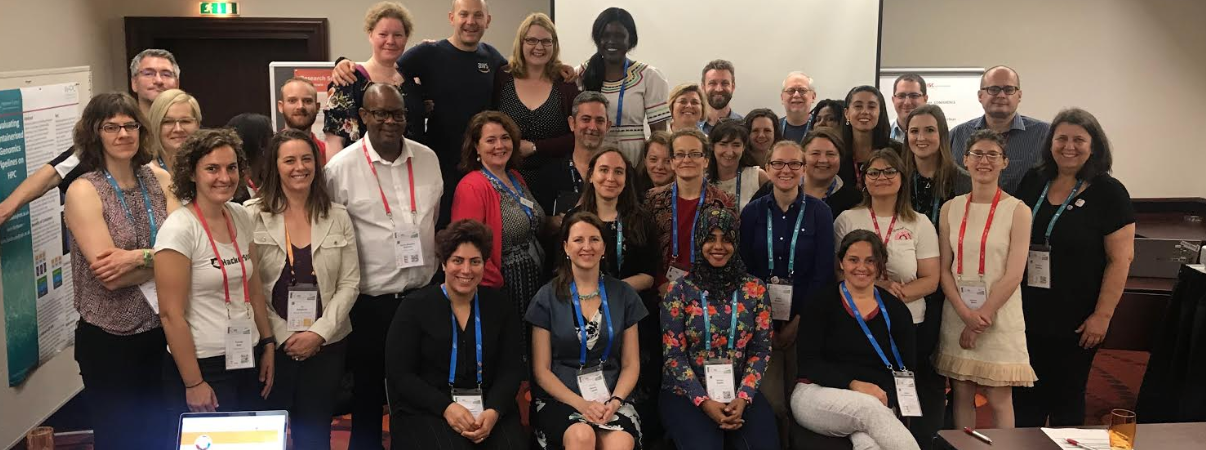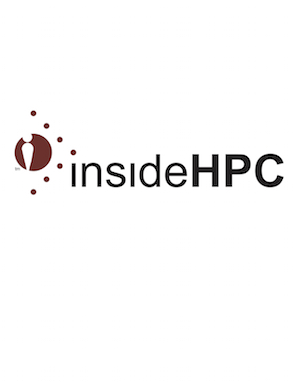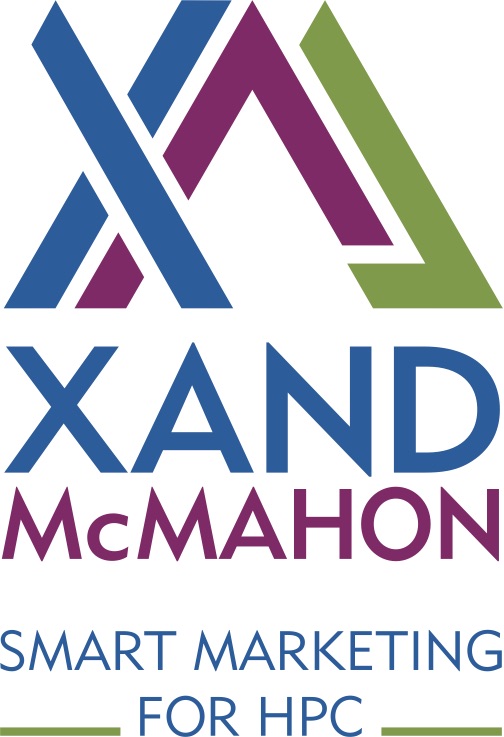Deadline for submissions: TBA
As part of the workshop, we invite submissions from women to present their HPC work to the HPC community as a poster and lightning talk. There will be an opportunity to meet with leading employers from across the HPC community and discuss your work with them.
After submission, presenters will be provided with a mentor to aid in the preparation of their poster and lightning talk before the workshop. Submissions for posters are invited as short abstracts (max 300 words) in any area that utilizes high-performance computing. Successful authors will be asked to provide a copy-ready electronic version of their poster by May 1st 2020 for publication on the workshop website.
We are encouraging women who consider themselves to be ‘early career’ (i.e. still studying or within five years of graduation) to participate, however, this opportunity is open to help everyone who feels they may benefit from presenting their work, irrespective of career stage.
Benefits of participating:
- Present: successful authors will present their work in a lightning talk at the workshop to an HPC audience, including peers and leading women across the international HPC community. Exclusive to ISC20 you will also have the opportunity to present your poster as part of the main ISC20 poster programme.
- Networking: build your HPC network, meet peers and potential employers.
- Advice and mentoring: Receive expert advice and mentorship to help prepare for your poster and presentation, developing skills for the future.
- Participate: the workshop will include a session on ‘Skills to thrive’ in your career. Attend ISC20 and join over 3,500 people to learn about the variety of activities and opportunities in the international high performance computing community.
Submit
Submissions are invited on all topics relating to HPC from users and developers. All abstracts should emphasize the computational aspects of the work, such as the facilities used, the challenges that HPC can help address and any remaining challenges etc.
As a poster author you will have the opportunity to share your work with the workshop audience in a brief ‘elevator pitch’ talk. This will be followed by the coffee break where attendees will have the opportunity to view your poster and discuss your work.
To submit your abstract for a poster please prepare your submission as a word or text document (NOT a PDF) containing the following information:
- Author information (For all authors):
- first and last name;
- current institution(s);
- short biography (max 1000 characters);
- company/institution;
- country; and
- photograph for website publicity.
- Poster information
- WHPC Poster title;
- abstract (up to 250 words);
- Draft of the poster as PDF file, 1 page maximum (the final poster may not exceed A0 portrait paper size (841 mm x 1189 mm/33.1” x 46.8”) or A1 landscape paper size (594 mm x 841 mm/23.4” x 33.1”). The poster should contain the WHPC logo for its display during the ISC main conference. Download a high-resolution of the WHPC logo here.
Call for posters: Now Open! Please follow this LINK.
Notification date: TBA
If you have questions please contact info@womeninhpc.org.


































 Research Associate, University of Sheffield, UK
Research Associate, University of Sheffield, UK Senior Software Development Manager – Amazon Web Services
Senior Software Development Manager – Amazon Web Services
 Brendan Bouffler has 25 years of experience in the global tech industry creating large-scale systems for HPC environments, beginning in the 90’s when he helped co-found a US-based dot-com start-up to apply extreme computing to streaming media for broadcast video environments. The company was successfully acquired (by Apple) in 2004.
Brendan Bouffler has 25 years of experience in the global tech industry creating large-scale systems for HPC environments, beginning in the 90’s when he helped co-found a US-based dot-com start-up to apply extreme computing to streaming media for broadcast video environments. The company was successfully acquired (by Apple) in 2004. Theresa is a career changer. In 2009, she started her Bachelor’s program in Business Administration at the University of Mannheim and decided afterwards to pursue her Master’s degree in Business Administration, again at the University of Mannheim. In 2015, Theresa joined Bosch in the Junior Managers Program. Since 2017, she’s an IT consultant in the area of manufacturing IT, supporting different Bosch divisions to realize their IT projects in the plants. Mid of this year, Theresa will take over a new assignment in the Corporate IT of Bosch.
Theresa is a career changer. In 2009, she started her Bachelor’s program in Business Administration at the University of Mannheim and decided afterwards to pursue her Master’s degree in Business Administration, again at the University of Mannheim. In 2015, Theresa joined Bosch in the Junior Managers Program. Since 2017, she’s an IT consultant in the area of manufacturing IT, supporting different Bosch divisions to realize their IT projects in the plants. Mid of this year, Theresa will take over a new assignment in the Corporate IT of Bosch. Laura Schulz is responsible for strategic development at the Leibniz Computing Centre in Garching, Germany, particularly in the areas of exascale, artificial intelligence and quantum computing. Prior to joining LRZ 1 1/2 years ago, she was Director of Marketing at the HPC Innovation Center at Lawrence Livermore National Laboratory in the US.
Laura Schulz is responsible for strategic development at the Leibniz Computing Centre in Garching, Germany, particularly in the areas of exascale, artificial intelligence and quantum computing. Prior to joining LRZ 1 1/2 years ago, she was Director of Marketing at the HPC Innovation Center at Lawrence Livermore National Laboratory in the US. TALENT STRATEGY – WHPC VICE CHAIR & WHPC’S DIRECTOR BUSINESS DEVELOPMENT
TALENT STRATEGY – WHPC VICE CHAIR & WHPC’S DIRECTOR BUSINESS DEVELOPMENT Professor of Computer Science and HPC Engineer at Intel
Professor of Computer Science and HPC Engineer at Intel

 University of Sheffield
University of Sheffield






 Scott Callaghan is a software developer at the Southern California Earthquake Center (SCEC) at the University of Southern California (USC). His research focuses on large-scale probabilistic seismic hazard analysis and the use of workflow technology in scientific applications. Scott received his master’s degree in High Performance Computing from USC in 2007.
Scott Callaghan is a software developer at the Southern California Earthquake Center (SCEC) at the University of Southern California (USC). His research focuses on large-scale probabilistic seismic hazard analysis and the use of workflow technology in scientific applications. Scott received his master’s degree in High Performance Computing from USC in 2007.




 Kelly Nolan is a highly respected bilingual communications, marketing, and public affairs executive, with more than 12 years of experience in the education, health, economic development sectors including working closely with boards of directors, executives, government officials and elected officials, directing teams, and managing division and organizational budgets. Kelly has directed, developed and executed bold and innovative public relations, marketing, and communications strategies, including larger scale social media and internet marketing initiatives, membership and sponsorship programs for all knowledge economy sectors. She is an accomplished professional with an exceptional track record of building positive relationships with senior government officials, external partners, executives, media, clients, external agencies, and internal team members.
Kelly Nolan is a highly respected bilingual communications, marketing, and public affairs executive, with more than 12 years of experience in the education, health, economic development sectors including working closely with boards of directors, executives, government officials and elected officials, directing teams, and managing division and organizational budgets. Kelly has directed, developed and executed bold and innovative public relations, marketing, and communications strategies, including larger scale social media and internet marketing initiatives, membership and sponsorship programs for all knowledge economy sectors. She is an accomplished professional with an exceptional track record of building positive relationships with senior government officials, external partners, executives, media, clients, external agencies, and internal team members.


















 Alison Kennedy is the Director of the STFC Hartree Centre, having joined in March 2016.
Alison Kennedy is the Director of the STFC Hartree Centre, having joined in March 2016. As the President and CEO of
As the President and CEO of 










 Trish Damkroger is Acting Associate Director for Computation at Lawrence Livermore National Laboratory (LLNL), and leads the 1,000-employee workforce behind the Laboratory’s high performance computing efforts. LLNL’s computing ecosystem includes high performance computers, scientific visualization facilities, high-performance storage systems, network connectivity, multiresolution data analysis, mathematical models, scalable numerical algorithms, computer applications, and necessary services to enable LLNL mission goals and scientific discovery through simulation.
Trish Damkroger is Acting Associate Director for Computation at Lawrence Livermore National Laboratory (LLNL), and leads the 1,000-employee workforce behind the Laboratory’s high performance computing efforts. LLNL’s computing ecosystem includes high performance computers, scientific visualization facilities, high-performance storage systems, network connectivity, multiresolution data analysis, mathematical models, scalable numerical algorithms, computer applications, and necessary services to enable LLNL mission goals and scientific discovery through simulation.


 Dr. Agarwal’s current research focuses on developing computational tools to enable scientists to more effectively organize and use their data to understand and mitigate climate change. She has worked on projects involving watershed understanding, tropical forests, soil carbon, carbon capture, cosmology, particle accelerators, and satellite data.
Dr. Agarwal’s current research focuses on developing computational tools to enable scientists to more effectively organize and use their data to understand and mitigate climate change. She has worked on projects involving watershed understanding, tropical forests, soil carbon, carbon capture, cosmology, particle accelerators, and satellite data. Figen joined Intel in November 2014 after 20+ years in software industry with experience in Technical Computing, Cloud and Data Science fields and is responsible for HPC Platform Software technologies for static and cloud workloads.
Figen joined Intel in November 2014 after 20+ years in software industry with experience in Technical Computing, Cloud and Data Science fields and is responsible for HPC Platform Software technologies for static and cloud workloads. I am a PhD student in the Faculty of Engineering and the Environment at University of Southampton since November 2015. I graduated with first class honours in Aerospace Engineering in 2015 from the same University.
I am a PhD student in the Faculty of Engineering and the Environment at University of Southampton since November 2015. I graduated with first class honours in Aerospace Engineering in 2015 from the same University. I have been working with Linux related technologies during the last seven years. Enthusiastic involved in Linux projects such as GNOME (Member of the GNOME Foundation) and FEDORA (FEDORA Peru Ambassador). Thanks to these projects I was able to travel for more than twelve countries and I also have been Linux Administrator and IT Linux Specialist in companies such as GMD and IBM. Among academic life experiences, I lectured in universities like PUCP (Assistant’s Professor), USIL (Professor) and UNI (Professor) in courses that let me spread the Linux knowledge such as Operative System, Networking, Security and Linux courses. Recently, I have involved in HPC researches and I belong to the HPC group at CTIC-UNI. Parallel computing and heterogeneous parallel programming are now my research topics.
I have been working with Linux related technologies during the last seven years. Enthusiastic involved in Linux projects such as GNOME (Member of the GNOME Foundation) and FEDORA (FEDORA Peru Ambassador). Thanks to these projects I was able to travel for more than twelve countries and I also have been Linux Administrator and IT Linux Specialist in companies such as GMD and IBM. Among academic life experiences, I lectured in universities like PUCP (Assistant’s Professor), USIL (Professor) and UNI (Professor) in courses that let me spread the Linux knowledge such as Operative System, Networking, Security and Linux courses. Recently, I have involved in HPC researches and I belong to the HPC group at CTIC-UNI. Parallel computing and heterogeneous parallel programming are now my research topics. I did my undergraduate degree in physics at
I did my undergraduate degree in physics at 

